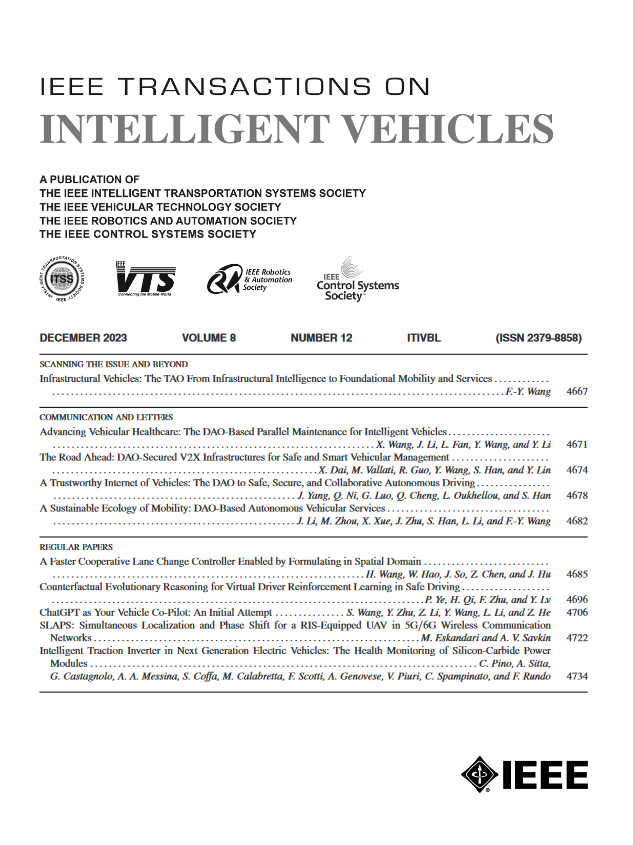Observer-Based Pole-Zero Cancellation Trajectory-Tracking Control for Two-Wheeled Vehicles With Performance Recovery Property
IF 14.3
1区 工程技术
Q1 COMPUTER SCIENCE, ARTIFICIAL INTELLIGENCE
引用次数: 0
Abstract
This study systematically considers the model and load uncertainties of the two-wheeled vehicles and its motor to devise an improved trajectory-tracking controller. The resultant feedback system consists of an inner loop command-following controller with respect to linear velocity and yaw angle references from the outer loop position controller. First, high-order pole-zero cancellation (PZC) techniques derive the model-free observers for the inner and outer loops to estimate the velocity and acceleration without the model structure and its parameter information. Second, similar to the observer design process, the observer-based proportional-integral controllers compensated by active damping terms stabilize the inner and outer loops, ensuring performance recovery by the first-order PZC. A LabVIEW-based prototype two-wheeled vehicle built by the TETRIX kit (vehicle body), OptiTrack (localization), and a MyRIO1900 (controller) validates the effectiveness of the proposed technique.具有性能恢复特性的两轮车辆基于观测器的极零抵消轨迹跟踪控制
系统地考虑了两轮车辆及其电机的模型和负载的不确定性,设计了一种改进的轨迹跟踪控制器。所得到的反馈系统包括一个内环命令跟随控制器,相对于来自外环位置控制器的线速度和偏航角参考。首先,采用高阶极点零抵消(PZC)技术,在不需要模型结构及其参数信息的情况下,推导出内环和外环的无模型观测器来估计速度和加速度。其次,与观测器设计过程类似,基于观测器的比例积分控制器通过主动阻尼项补偿来稳定内外环,确保一阶PZC的性能恢复。基于labview的两轮原型车由TETRIX套件(车身)、OptiTrack(定位)和MyRIO1900(控制器)制造,验证了所提出技术的有效性。
本文章由计算机程序翻译,如有差异,请以英文原文为准。
求助全文
约1分钟内获得全文
求助全文
来源期刊

IEEE Transactions on Intelligent Vehicles
Mathematics-Control and Optimization
CiteScore
12.10
自引率
13.40%
发文量
177
期刊介绍:
The IEEE Transactions on Intelligent Vehicles (T-IV) is a premier platform for publishing peer-reviewed articles that present innovative research concepts, application results, significant theoretical findings, and application case studies in the field of intelligent vehicles. With a particular emphasis on automated vehicles within roadway environments, T-IV aims to raise awareness of pressing research and application challenges.
Our focus is on providing critical information to the intelligent vehicle community, serving as a dissemination vehicle for IEEE ITS Society members and others interested in learning about the state-of-the-art developments and progress in research and applications related to intelligent vehicles. Join us in advancing knowledge and innovation in this dynamic field.
 求助内容:
求助内容: 应助结果提醒方式:
应助结果提醒方式:


